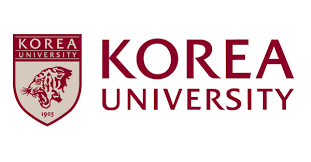Korea University: Development of an immunosonodynamic therapy demonstrating a high level of specificity in killing cancer cells
The newly-developed immunosonodynamic therapy is a tumor-targeting treatment combining sonodynamic therapy and immunotherapy.
There are immune cells in our body that recognize, attack and kill foreign bodies such as bacteria and viruses. However, when these immune cells encounter cancer cells, they often fail to function effectively. This is because when the PD-L1 protein of cancer cells is combined with the PD-1 protein of immune cells, the latter do not recognize cancer cells as invaders and thus the cancer cells can remain alive, a process which is known as immune check-point inhibition. To counter this, if a PD-1 or PD-L1 antibody is injected into the body as an immune checkpoint inhibitor, immune cells can be activated to attack cancer cells. This type of cancer treatment is called immunotherapy.
However, in the case of existing anti-tumor immunotherapies, the expression level of the PD-L1 protein on the surface of cancer cells differs between patients, and so it has been possible to apply these therapies only to some patients in clinical settings. This problem can be solved by administering an immunologic adjuvant like imiquimod (R837), which can suppress tumors regardless of the level of PD-L1 protein expression in cancer patients.
When activated through the use of ultrasound, methylene blue, the widely known sonosensitizer employed in this study, releases reactive oxygen species and, in turn, kills cancer cells. However, when a sonosensitizer is delivered to specific sites and subsequently ultrasonicated, reactive oxygen species are generated not only in cancer cells but also in normal cells due to in-vitro ultrasonic penetration as deep as five centimeters or more, and this can cause serious side effects. In order to solve this problem, it is essential to develop a sonosensitizer that is activated only in cancer tissues. In other words, if it is possible to develop a sonosensitizer that specifically targets cancer cells, which generates reactive oxygen species only in tumor tissues even when irradiated with ultrasound waves, it will be a breakthrough photodynamic cancer therapy that can kill only cancer tissues without damaging normal tissues.
The research team, led by Professor Kim Jong-seung from the Department of Chemistry at the College of Science, succeeded in synthesizing a new immunosonodynamic treatment that combines methylene blue (an ultrasound sensor) and imiquimod (an immunologic adjuvant). When this substance enters normal tissues, the sonosensitizer and immunologic adjuvant do not work effectively in treating cancer, as they are inactive. However, when it penetrates cancer tissues, the substance undergoes a chemical reaction with glutathione, which is overexpressed in cancer cells, and subsequently creates an active sonosensitizer and effective immunologic adjuvant. At this time, the sonosensitizer that has been produced responds to the applied ultrasonic wave and generates abundant reactive oxygen species which kill cancer cells, while the immunologic adjuvant elicits an immune response that promotes dendritic cell maturation. As a result, this study succeeded in creating an immunosonodynamic therapy that responds only to cancer tissues, and confirmed that the therapy can efficiently kill cancer cells regardless of the expression level of PDL-1 protein in in-vitro cancer cells, and induce immune responsiveness to recurrent or metastasized cancer cells.
* Glutathione: As a crystalline peptide composed of glutamic acid, cysteine, and glycine, this is a representative antioxidant in an in-vivo system. Cancer cells display a higher concentration of glutathione than normal cells as a defense mechanism against a high concentration of reactive oxygen species, a by-product of an active metabolism.
“This study is particularly meaningful in its accentuation of the importance of developing an immunosonodynamic therapy that employs a tumor-specific microenvironment activation system. We look forward to various new breakthroughs in overcoming the drug resistance of cancer cells, and resultant progress in immunotherapy,” said Professor Kim Jong-seung, CEO of Theranochem.

